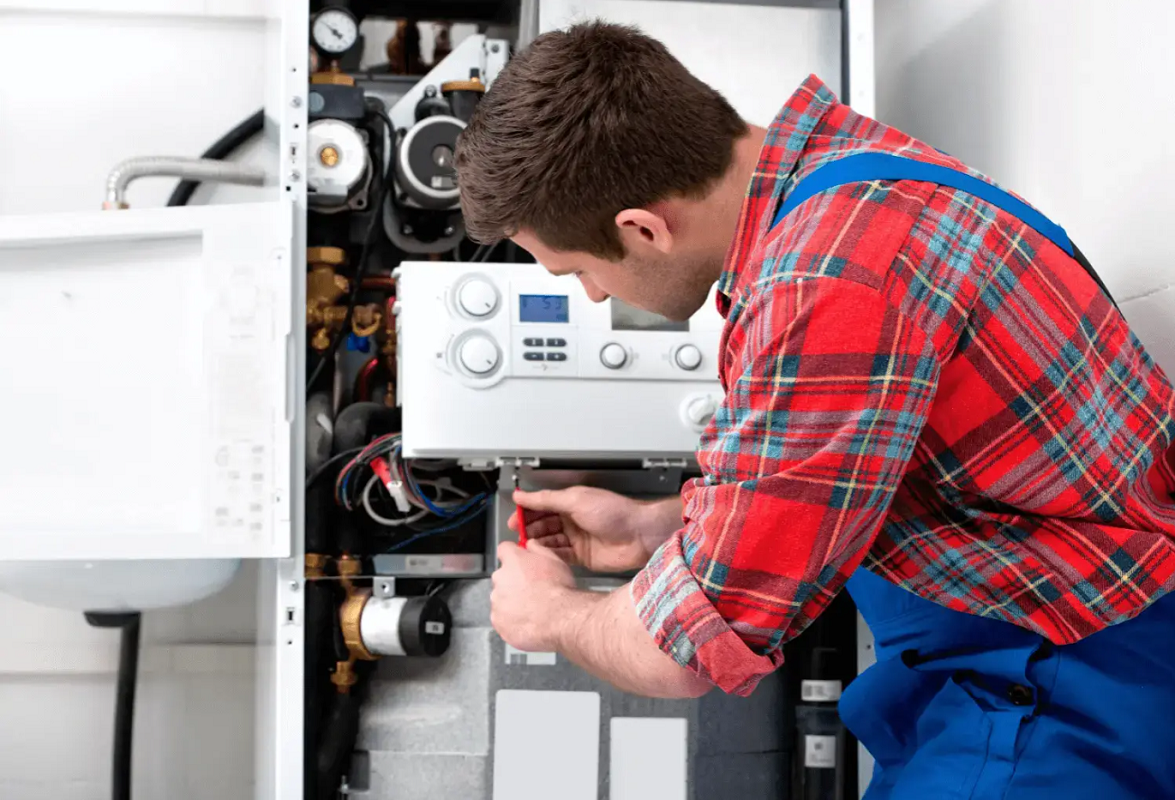As the winter season approaches, homeowners are faced with the task of ensuring that their homes are warm and comfortable. Choosing the right heating services is crucial for maintaining a cozy atmosphere and reducing energy costs. This guide will provide you with valuable information on various heating services, types of home heating systems, and factors to consider when selecting the best heating solution for your home.
Understanding the Different Types of Home Heating Systems
There are several types of home heating systems, each with its own set of advantages and disadvantages. Some of the most common heating system types include:
- Furnaces: Furnaces are one of the most popular heating systems, using natural gas, propane, or electricity to heat air, which is then distributed throughout the home via ductwork and vents.
- Boilers: Boilers heat water and distribute the resulting steam or hot water through pipes to radiators or baseboard heaters, providing a more even heat distribution than forced air systems.
- Heat Pumps: Heat pumps work by transferring heat from the outside air or ground to the inside of the home, making them an energy-efficient option for both heating and cooling.
- Radiant Floor Heating: This type of heating system uses electric cables or hot water tubes embedded in the floor to provide heat, offering a comfortable and efficient heating solution.
Factors to Consider When Choosing a Heating Service
When selecting the right heating service for your home, there are several factors to consider, including:
- Climate: The climate in your region will play a significant role in determining the most suitable heating system for your home. For example, heat pumps may not be the best option for homes in extremely cold climates.
- Home Size and Layout: The size and layout of your home will affect the type of heating system that will work best for your needs. Larger homes may require more powerful systems or multiple heating units, while smaller homes may benefit from more energy-efficient options.
- Fuel Source: The availability and cost of fuel sources such as natural gas, propane, electricity, and oil will also impact your choice of heating system.
- Personal Preferences: Your personal preferences, such as the desired level of comfort and the importance of energy efficiency, will play a role in your decision-making process.
The Importance of Energy Efficiency in Heating Systems
Energy efficiency should be a top priority when choosing a heating service for your home. Not only can an energy-efficient system help reduce your carbon footprint, but it can also save you money on your energy bills. Some ways to improve the energy efficiency of your heating system include:
- Choosing a high-efficiency system with a high Annual Fuel Utilization Efficiency (AFUE) rating.
- Properly insulating your home to prevent heat loss.
- Regularly maintaining your heating system to ensure optimal performance.
- Installing a programmable thermostat to better control your home’s temperature.
The Role of Heating Contractors in Installation and Maintenance
Professional heating contractors play a crucial role in the installation and maintenance of your home’s heating system. They can help you determine the best heating solution for your needs, install the system properly, and provide regular maintenance to ensure optimal performance and longevity. When choosing a heating contractor, consider the following:
- Experience: Look for a contractor with a proven track record of success in the industry.
- Licensing and Certification: Ensure that the contractor is licensed and certified to work in your area.
- References: Ask for references from previous clients to gauge the contractor’s level of expertise and customer satisfaction.
- Warranty and Maintenance Plans: Inquire about the contractor’s warranty and maintenance plans to protect your investment.
Cost Considerations for Heating System Installation and Maintenance
The cost of installing and maintaining a heating system will vary depending on the type of system, the size of your home, and the complexity of the installation. Some factors to consider when budgeting for your heating system include:
- Initial Installation Costs: The cost of purchasing and installing a new heating system can range from a few thousand dollars to tens of thousands of dollars, depending on the type and size of the system.
- Ongoing Maintenance Costs: Regular maintenance is essential for keeping your heating system running efficiently and prolonging its lifespan. Budget for annual maintenance costs, which can range from $100 to $500 or more, depending on the type of system and the services provided.
- Energy Costs: The cost of fuel for your heating system will also impact your overall expenses. Research the average cost of your chosen fuel source in your area to estimate your monthly energy bills.
Tips for Choosing the Right Heating Service Provider
Selecting the right heating service provider is essential for ensuring that your home stays warm and comfortable throughout the winter months. Keep these tips in mind when searching for the perfect heating service provider:
- Do Your Research: Investigate different heating service providers in your area, read reviews, and ask for recommendations from friends and family.
- Compare Quotes: Obtain quotes from multiple providers to ensure that you’re getting the best deal for your heating system installation and maintenance.
- Ask Questions: Don’t be afraid to ask potential providers about their experience, certifications, and warranties to ensure that you’re making an informed decision.
- Trust Your Instincts: Ultimately, choose a provider that you feel comfortable with and confident in their ability to meet your heating needs.
Conclusion
Choosing the right heating services for your home is crucial for maintaining a comfortable living environment and reducing energy costs. By understanding the different types of heating systems, considering factors such as climate and home size, prioritizing energy efficiency, and working with a reputable heating contractor, you can ensure that you make the best decision for your home’s heating needs. With proper installation and regular maintenance, your home will stay warm and cozy all winter long.




